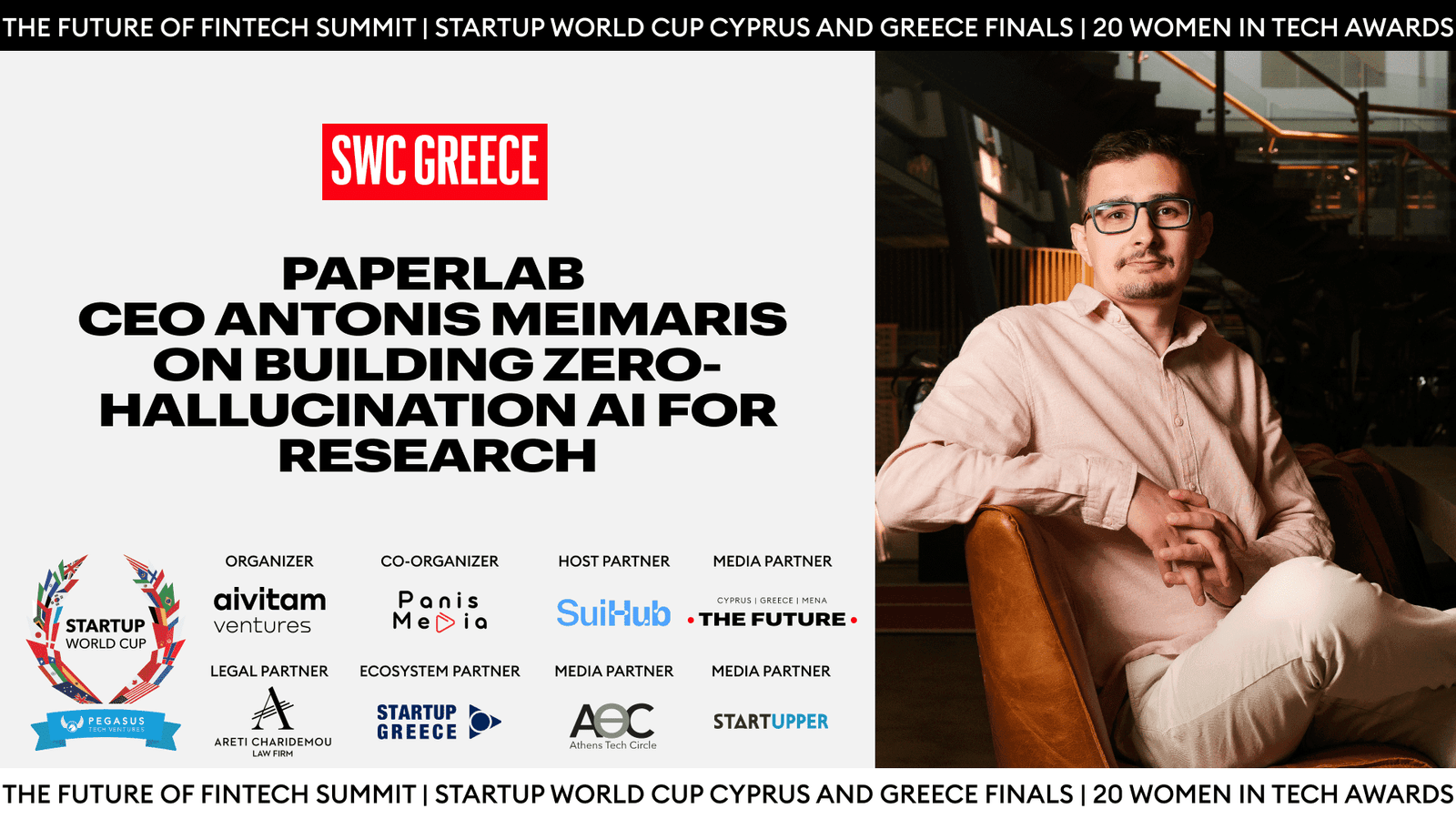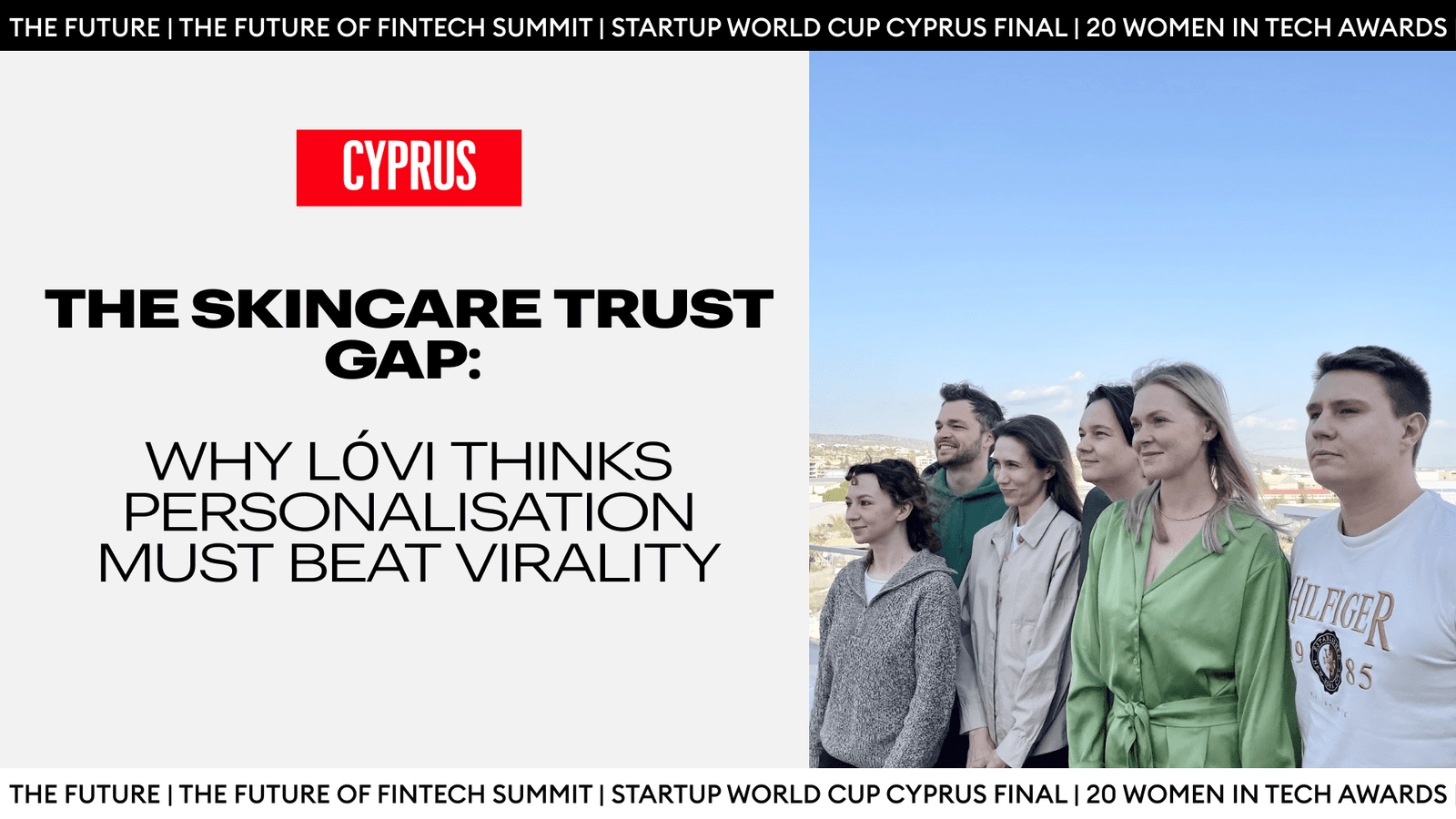Every 9.5 seconds, a new scientific paper is published somewhere in the world. That’s more than 3.3 million journal articles a year, enough to overwhelm even the most dedicated researcher. For decades, academics and R&D teams have relied on keyword searches, Ctrl+F, and sheer stamina to stay current. But as the volume of literature keeps growing and access expands, the old tools are failing. Studies show that conventional keyword-only searches miss up to half of all relevant research, while systematic reviews typically take over a year to complete, often duplicating work already done or overlooking critical evidence buried in poorly indexed documents. PaperLab aims to address these challenges.
Enter PaperLab, a research intelligence platform founded by Dr. Antonis Meimaris, a mathematician and AI researcher with a career track that has moved through Columbia University, Monash University, and Silicon Valley organisations. Born out of personal frustration with the “firehose of knowledge,” PaperLab combines advanced OCR and AI designed specifically for research integrity. Its “zero-hallucination” mode cites every claim back to its source, saving researchers time without replacing them. With PaperLab, researchers can navigate the overwhelming volume of information more effectively.
Follow THE FUTURE on LinkedIn, Facebook, Instagram, X and Telegram
In this interview with The Future Media, CEO/CTO and founder, Dr. Antonis Meimaris, discusses the crisis of knowledge overload in research, how PaperLab’s “zero-hallucination” AI is restoring trust in scientific discovery, and why the future of innovation depends not on generating more data, but on truly understanding what we already know. PaperLab is pivotal in transforming how we approach research efficiency.
How did you come into this space of research software and knowledge tools?
My background is in Mathematics and Artificial Intelligence, with a research career that took me from the University of Athens and the University of Liverpool to Columbia University and finally Monash University in Australia. Along the way, I worked with government agencies, Silicon Valley companies, and presented my research at institutions like MIT and Caltech. My work in diffusion models gave me early access to OpenAI’s DALL-E, and I also led projects that contributed to advancing the UN’s Sustainable Development Goals, receiving notable recognition for these efforts.
What problem were you seeing in the academic research space and R&D workflows?
Throughout my career, I noticed a common challenge: researchers are overwhelmed by the sheer volume of information.
Millions of research papers are published globally every year, roughly one every ten seconds. Yet, researchers and R&D teams are expected to stay up-to-date with the latest insights.
Screening massive amounts of papers to find the few relevant insights was exhausting. It became clear that humans alone could not keep pace with the exponential growth of scientific output. Traditional tools, like keyword searches in Google Scholar or Ctrl+F, are often inadequate, as writing styles vary and key insights may be hidden. Narrow searches risk missing important information, while broad searches require extensive manual filtering. The result is wasted time, missed opportunities, and duplicated efforts, especially in multidisciplinary research.
This realization sparked the idea: using AI to augment researchers rather than replace them and develop a solution that focuses on improving how knowledge is accessed and utilized. During the development, however, my team also encountered a major hurdle with document preparation for LLM-based analysis. PaperLab now addresses this firmly; it has become one of the most advanced OCR platforms for handling complex documents, ensuring that the foundation of the research pipeline is clean, accurate, and reliable.
What is the mission of PaperLab, and who are its main users?
PaperLab’s mission is to help researchers and R&D teams process and understand large volumes of knowledge efficiently.
Our primary users are academic researchers, PhD candidates, postdocs, and corporate R&D teams. We are also exploring additional verticals where professionals manually sift through data, such as consulting, legal, and even shipping. Our first paying customer uses PaperLab for tabular PDF analysis.
By providing reliable OCR solutions, we increase the efficiency, reliability, and accuracy for every LLM tool out there, and we are proud of taking this step forward.
Who is on your core team today?
PaperLab is driven by a small, focused team. I lead the scientific and technical direction, while our Head of Growth manages adoption and community. We also collaborate with advisors and experts in academia, product development, and AI ethics.
How does your zero-hallucinations mode work?
Accuracy is paramount. Our “zero-hallucinations mode” extracts and summarizes information strictly from user-uploaded source documents, providing citations and context for every claim.
We do not generate content in the same way LLMs do, and PaperLab is not an LLM wrapper; it is a dedicated application built for research integrity and transparency.
How do you measure impact for teams using PaperLab?
Impact is measured primarily by time saved. Researchers report reducing weeks of screening to hours or minutes. For example, one systematic review screening workload of 18,000 potential papers was reduced to a manageable fraction. Beyond efficiency, PaperLab helps users discover connections they might otherwise miss, allowing them to focus on core scientific work.
How do you handle privacy for customer data and deployments?
Privacy is central to PaperLab. We never use customer data to train models. Users can choose between cloud and, eventually, on-premise deployments depending on resources. All documents remain within the user’s environment, protected by encryption and access controls. We are actively pursuing GDPR, ISO, and SOC2 compliance to ensure rigorous privacy and security standards.
Why did you choose to participate in Startup World Cup Greece this year, and what were your main takeaways?
We participated in connecting with the European ecosystem. While PaperLab was founded in Australia, we were global from day one and view Greece as a natural bridge for European expansion. The Startup World Cup Greece allowed us to meet investors, researchers, and fellow founders. My key takeaway: Greece is a rising ecosystem full of talent and momentum.
What does success look like for PaperLab over the next two years?
Success means becoming a trusted companion for researchers and other professionals worldwide. In two years, we aim for PaperLab to be the go-to tool whenever users feel overwhelmed by literature.
On the business side, success includes establishing a strong presence in Europe and North America, growing our user base, and proving that AI can accelerate scientific discovery without compromising accuracy or trust.














